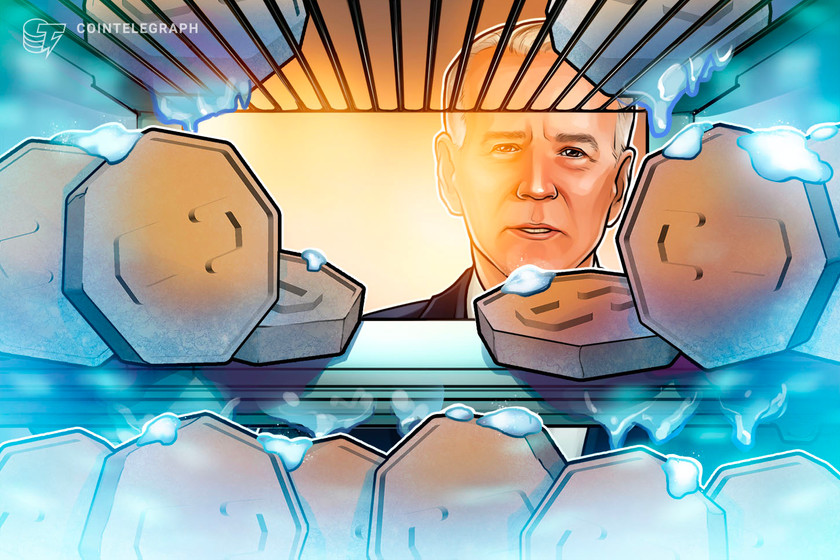The Singapore government, along with an array of the world’s major financial and manufacturing companies, has formed an alliance to promote the adoption of digital technologies in trade and commerce.
According to a press release shared with Cointelegraph on Jan. 22, the government of Singapore, the International Chamber of Commerce (ICC) and 16 other companies including Mastercard, Mitsubishi Corporation, DBS Bank, Tokio Marine and Marubeni Corporation have partnered to speed up the deployment of digital technologies in trade and commerce.
Shifting from paper-based systems
The new partnership is part of the ICC TradeFlow Alliance which uses the digital trade platform TradeTrust built by Singapore-based blockchain company Perlin. The impetus behind the initiative is to transit from paper-based systems to digitally-enabled trade, which will purportedly cut time and operational costs, as well as reduce incidences of fraud and human error.
The firms involved are also open to integrating distributed ledger technology into their operations, with British banking and financial services company Standard Chartered saying that it sees “tremendous opportunities to leverage digital solutions to enable faster, safer, more efficient, and transparent trade transactions across our global network.” Singaporean DBS Bank commented:
“Among business processes, trade and trade finance continue to be the most onerous, with reams of physical paper having to move from place to place to establish authenticity and ownership. Digital technologies, especially distributed ledger, are well geared to solve this, but this requires coordination from key players on a global scale.”
Managing digital trade documents on a public blockchain
Perlin told Cointelegraph that ICC TradeFlow is built on top of the Singapore Government’s TradeTrust network, a multilateral, open, legal and technical framework that purportedly enables interoperability across different trade platforms and formats for exchanging trade documents on a public blockchain.
The Singapore Government will act through its local digitization and trade authorities — Infocomm Media Development Authority and Enterprise Singapore, which will promote and apply platform, as well as launch dedicated pilots based on deals moving through Singapore.
As of now, the ICC TradeFlow pilot has ostensibly more than halved transaction times from 45 days to 20 days. The company intends to reduce the transaction time to 24 hours or even less.
Additionally, the ICC TradeFlow allows trading partners to exchange, verify and authenticate digital trade documentation, including letters of credit, bills of lading and others, which must be shared between trading counterparties.
Blockchain provides new opportunities in international trade
The new opportunities presented by digital platforms — such as the ability to digitize assets — will make international trade more inclusive, Perlin states, and allow more small and medium enterprises participate:
“This has huge benefits including enabling new alternate sources of trade financing, allowing investors currently locked out by the complex and time-consuming paper-based frameworks to invest in and trade digitised physical assets (e.g. sovereign wealth funds, pension funds, family offices, etc. — will be able to participate). Whole new types of financial derivatives will be possible for trade and trade finance globally.”
“This is part of the vision for blockchain to make global economies more efficient, inclusive and sustainable,” Perlin said.
Technical and regulatory challenges
When testing the TradeTrust platform, the participating parties came across several technical challenges. For example, companies that currently conduct trade using paper-based systems must undergo extensive retraining in order to use new digital platforms and paperless systems.
Participants also needed to ensure that ICC TradeFlow could handle complex variables that may arise in any given transaction, such as time delays, location changes and variations in trade terms, among others.
In terms of regulatory challenges, Perlin noted that, outside of Bahrain, there are no jurisdictions which have laws that legally recognize digital documents for authenticating and asset titles. Even in Singapore, new laws that will enable traders in the country to legally rely on digital trade documents will enter into effect later this year.
Until then, trade partners who use digital platforms simply agree to recognize the digital documents used in pilots and must maintain the physical documents as a back up.
Perlin said, “Until international standards governing digital trade are developed, established and widely accepted – blockchain adoption for trade and commerce will be difficult.” The company added that one of the objectives of the newly formed alliance is to support the development of international standards and accepted digital trade rules in the field.
Blockchain in international trade
Blockchain technology seems to be a hold promise for bringing the trade industry into the digital age. Last December, Trade Finance Global partnered up with the World Trade Organization to produce a 56-page report titled “Blockchain & DLT in Trade: A Reality Check,” endorsed by the ICC.
The report observed that 44% of respondents using or developing DLT listed increased speed and efficiency as a top-three benefit from utilizing the technology in the trade finance sector, while 35% indicated cost reductions. These trail behind transparency, which 55% listed as a top benefit.
At the time, Emmanuelle Ganne, senior analyst in the WTO’s economic research and statistics division, shared her thoughts in a private interview:
“Blockchain & DLT have the potential to truly transform international trade, but technology is only a tool. As more and more projects move into production, putting in place the right policy environment becomes increasingly important. Governments have a key role to play in this respect.”









